Mazebook
Writer & Artist: Jeff Lemire
Letterer: Steve Wands
Cover Artist: Jeff Lemire
Publisher: Dark Horse Comics
I’ve been thinking about Mazebook a lot lately. The latest graphic novel from cartoonist Jeff Lemire follows Will, a father who is trying to find his way forward ten years after the death of his puzzle-loving daughter, Wendy. One night Will receives a phone call that he believes is from Wendy, and he sets off on a journey to find her by using her last, unfinished maze as a map through Toronto. It’s ultimately a book about a man coming to terms with the grief of an inconceivable loss, and figuring out how to live a life beyond it.
There’s a reason this book has been on my mind. My wife, Jennie, died last month. She’d been diagnosed with cancer not quite two years ago, and her journey with it finally ended a few weeks ago. The emotion and trauma of the past two years, and of the final weeks and days of her life, is still incredibly fresh in my mind, and I’ve been flailing around since her death trying to figure out how to keep going and, perhaps more pressingly, why I should even bother.
I first read the opening chapter of Mazebook, which was released in five extra-long issues by Dark Horse Comics before coming out in hardcover format in June, about a year ago, and it just absolutely wrecked me. Will begins the book as a broken man, going through the motions of his life with no affect or interest, simply filling the time of the day, and all the time asking questions of an unfair universe that are bound to go unanswered.
At the time I read the first issue, I saw a vision of my future on the page, and it has turned out to be remarkably accurate in capturing how this feels. Routine has become a refuge and a welcome distraction from my own thoughts, which tend to spiral if I spend too much time alone with them. I feel hollow inside, like there’s an empty space in my chest where something crucial to my existence should be. I worry that I’ll always feel this way, that there will always be a dark cloud following me around even if I do somehow manage to figure out how to keep going.
The fading memory of his daughter is another thing Will struggles with. Ten years on from her death, he remembers specifics about Wendy’s personality, how she dressed, and what she loved, but is unable to bring forth what her face looked like. At other times, Lemire will present a memory Will is having of Wendy in the years before she got sick, only for a panel featuring hospital equipment or Wendy’s frail hand to appear in the middle of the sequence. Now on the other side of Jennie’s cancer, that memory creep is something I find myself experiencing as well. Her illness played such an outsized part in the last two years of her life that it’s occasionally a struggle to remember a time before it, and even when I do it feels like my mind always ends up back in that hospital room at the end. The trauma of the loss is hard to shake, and I imagine it will be for a long, long time.
Still, there are elements of Mazebook that give me hope – and even, in some instances, valuable suggestions – for my path forward. Will is able to reconnect with the memory of his daughter after engaging in one of her favorite activities: completing a complicated maze. I’ve also found myself gravitating towards some of Jennie’s favorite things, be they books, TV, or music, in a way that has made me feel closer to her. Just thinking of her while I read or watch something has been a nice reminder that, even though she’s physically no longer here, she’ll never really be gone from my life.
The visual of the maze is a striking design element, and one that is used to great effect throughout the book. Lemire frequently links panels with the corridors of a maze, in effect making the gutters between them a simple maze on the page. At other times Lemire’s panel layouts mirror the pathways of a maze, leading the reader’s eye down, then across, then up, then back, then forward. It’s disorienting in a good way, and it brings readers into Will’s headspace as he navigates his way through the maze.
They say there are five stages of grief – Denial, Anger, Bargaining, Depression, and Acceptance – and they’re always laid out in that linear path, but the truth of the process is much more complicated. For the past few weeks (and really, in retrospect, for the past few months as things got worse instead of better), I’ve been slingshotting through all five stages pretty regularly. I’m pissed off at everyone and everything that this has happened, and I’m stunned that any of this is real, and sometimes I think I’m equipped to handle it and move forward, and mostly I’m just numb and sad and desperately missing my wife. Sometimes I’m multiple of those things at once, and sometimes I’m all of them, and sometimes I’m none of them, but in a way it feels like I’m trying to find my way through a maze. I find a path that feels like it might be okay, and then I hit a dead-end and have to backtrack or just completely start over. It’s not a perfect metaphor, but it has helped me navigate these feelings as well as I can, hoping that, eventually, I will find myself on the right path.
It feels significant that the maze Will completes in Mazebook is not one with an entrance and an exit, which is what I typically think of when I think of a maze. Instead, it’s a labyrinth-like maze that leads to a center, which is where Will ultimately finds Wendy. There’s no exit from grief, either, as far as I can tell – from talking with others who have experienced similar losses it’s a thing that will never, ever go away, but that you can eventually learn to live with. Being in the center of my grief sounds impossible right now, but, if you think about it, once you’re in the center of the maze you’re surrounded by equal parts of all of the paths that led you there, and maybe finding some sense of equilibrium between all of the conflicting things I’m feeling will be the best way to live with my grief.
For readers who are not currently grieving the loss of a loved one, there’s plenty to appreciate about Mazebook, from the engaging characters, to the often-trippy imagery, to the interesting page layouts, to the talking dog (how did I get this far without mentioning the talking dog). It’s a thematically rich book that I’m certain I’ll return to as I continue to figure out my own path forward.
Published by Dark Horse Comics, Mazebook is available in standard and Dark Horse Direct exclusive hardcover now.


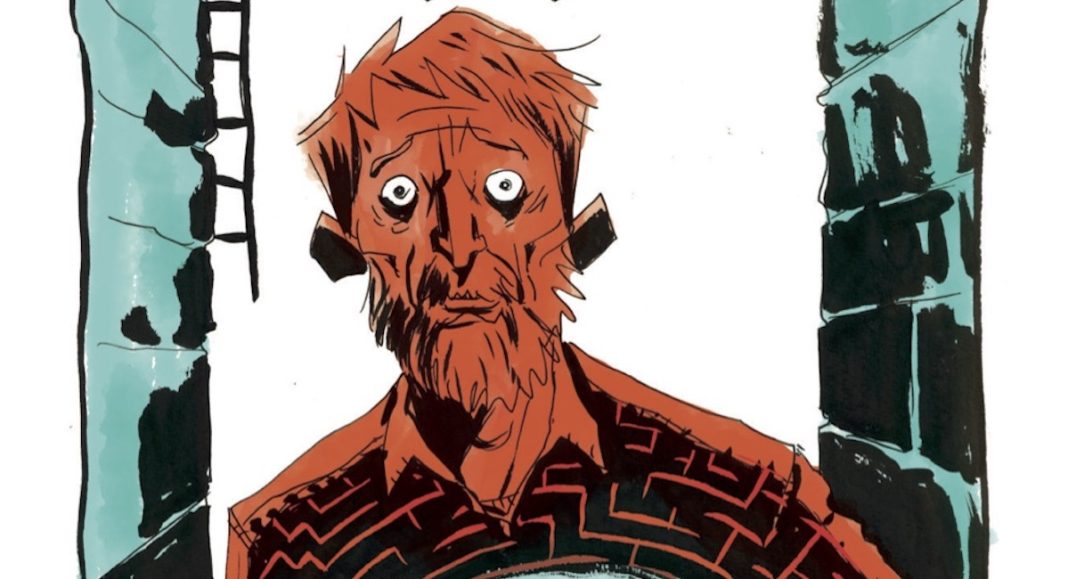
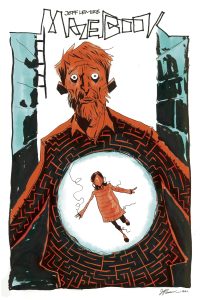
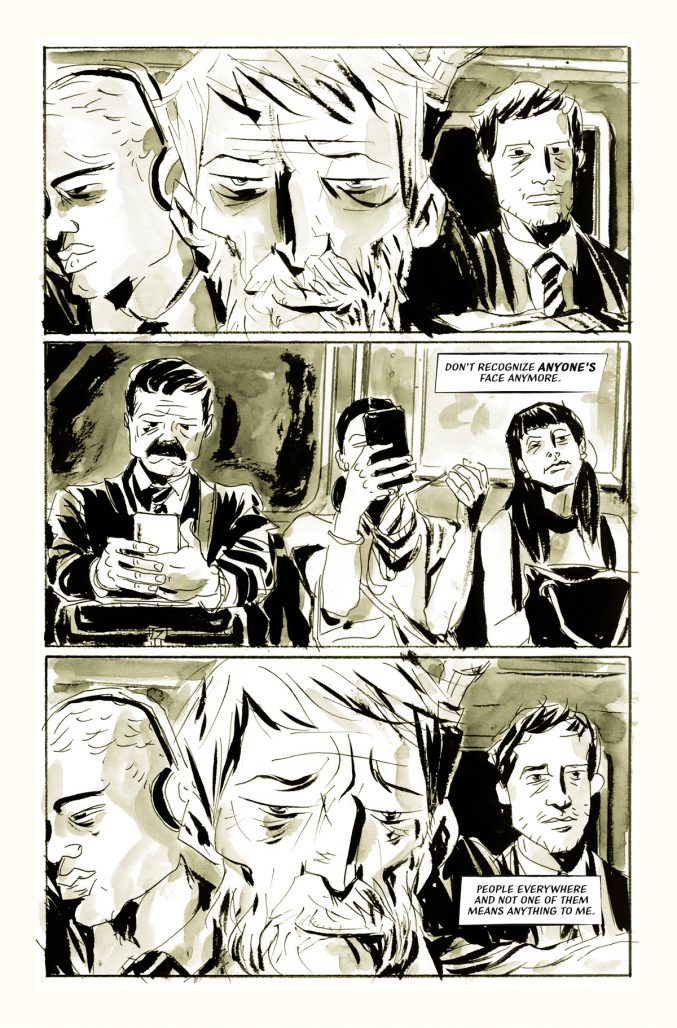
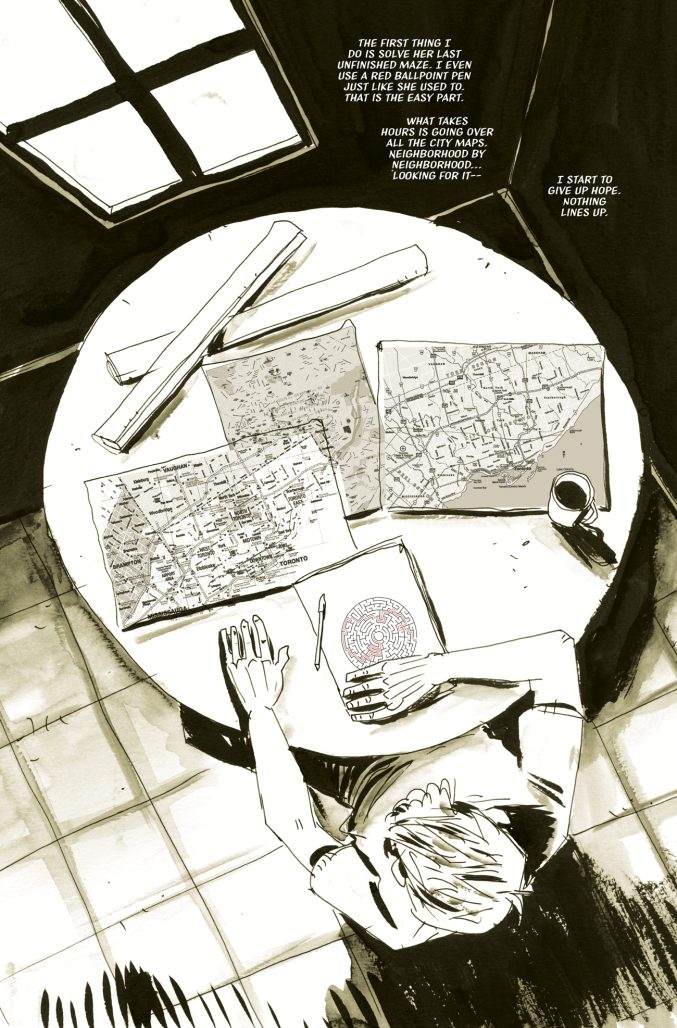
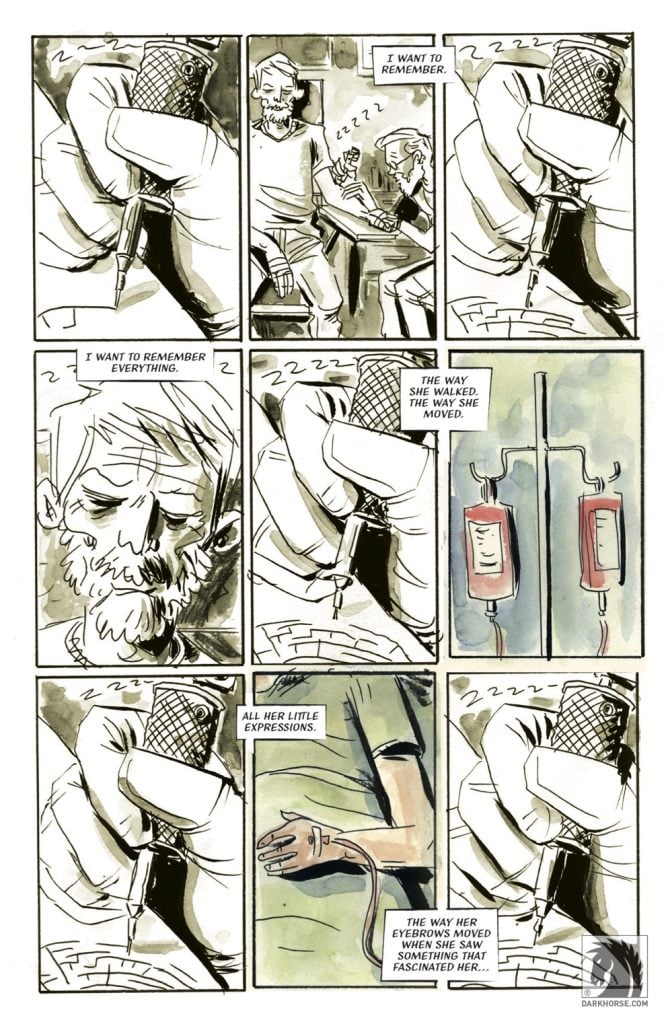

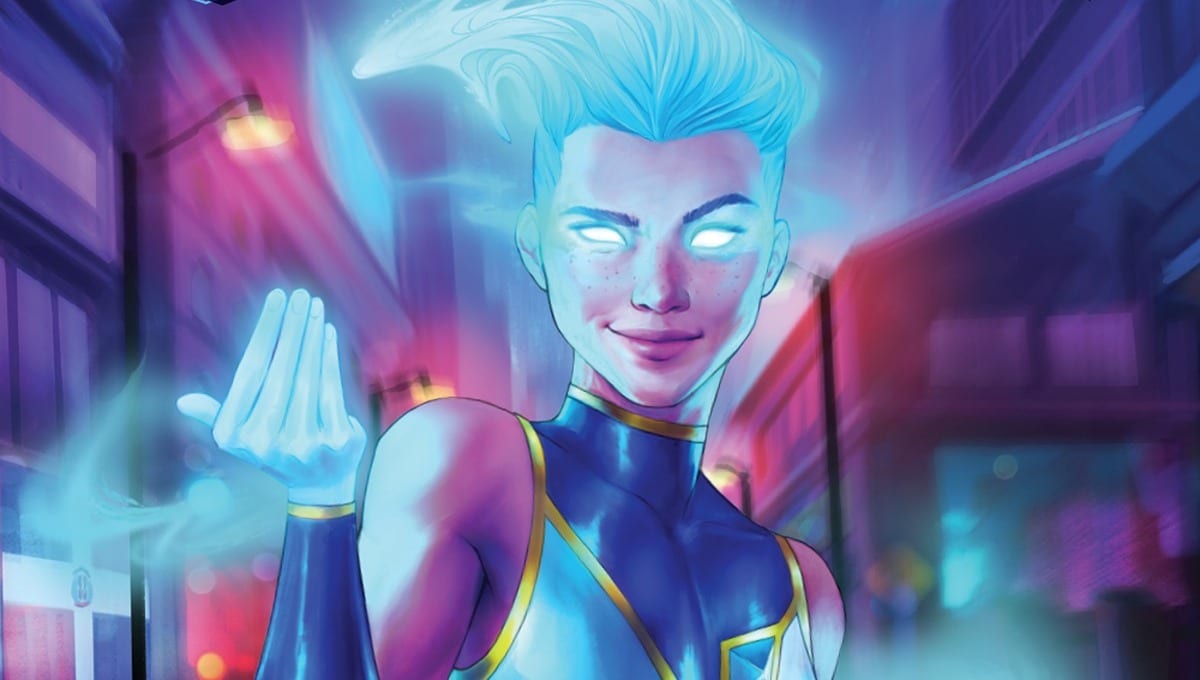
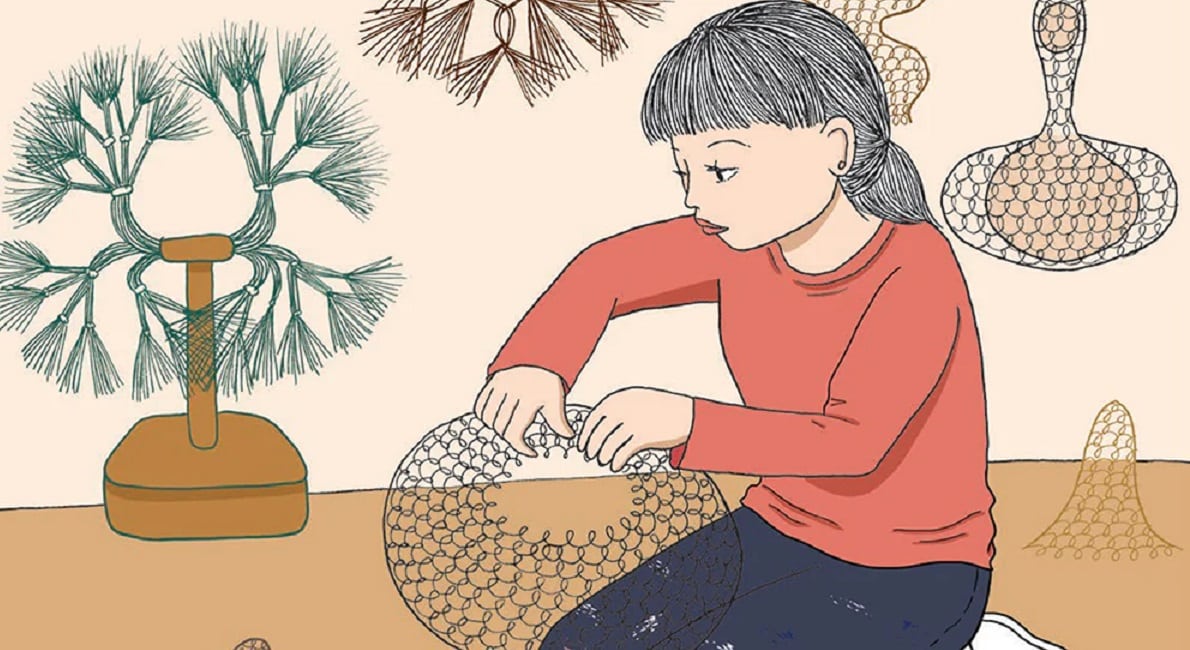



Joe, thank you for sharing your personal experiences as a way of elaborating on the themes of Lemire’s story. I’m sincerely sorry for your loss.
Absolutely the most personal and emotionally moving review of any genre I have ever read. Not a fan of Mr. Lemire’s work, but this sounds like something that anyone, eventually, could easily relate to. I am sorry for your recent loss and wish you the best possible life from here on. Grief is a bitch as I have said, and felt, before. Take care.
Comments are closed.